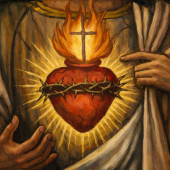Israel’s vocation was to become a missionary!

August 24, 2025 Twenty-first Sunday in Ordinary Time
Daily Readings: Isaiah 66:18-21; Hebrews 12:5-7, 11-13; Luke 13:22-30
Trito-Isaiah, the final section of the book, deals with the life of the returnees from exile, a time of renewal and restoration. They are called to rebuild the Temple, the city, and the walls of Jerusalem, but more importantly, to rebuild their lives with sincerity. There is a call to repentance, for they can no longer afford to disobey God.
In this passage, God Himself speaks. He knows the works and thoughts of the Israelites. He will send them as missionaries to Tarshish (modern-day Spain, France, and Italy), to Pul and Lud in Africa, and to Javan (Greece). They will proclaim God’s glory, and as a result, many of their relatives from the lost tribes of Israel will return to the Lord, leading to a great gathering. These returnees will bring offerings to the Lord on His holy mountain. Historically, in recent years, about 3,500 people traced their origins and returned to the Jewish faith, an echo of this prophecy. In verse 21, the Lord promises that the priesthood in Judaism will be extended to the Gentiles, no longer being the exclusive privilege of a few Jews.
The author of Proverbs says in 13:24, “Those who spare the rod hate their children, but those who love them are diligent to discipline them.” How do we know that a father truly loves and cares for his children? One sign is his willingness to discipline them. God’s discipline, likewise, is a sign of His love; it is His way of teaching and guiding His children. The sufferings and struggles we face are meant to train us in our spiritual journey, not to punish us. Believers are called to endure hardships, which, though painful and uncomfortable, produce righteousness.
In the ancient Mediterranean world, physical discipline of children was a widely accepted means of instilling obedience. Proverbs (3:11–12; 23:13) and Sirach (30:1, 12) even advocate frequent and strict discipline of boys to secure their loyalty and respect. However, modern culture across the globe largely disapproves of physical discipline as a child-rearing strategy. How do we reconcile these opposing views? The passage closes with an exhortation using athletic imagery: “Therefore lift your drooping hands and strengthen your weak knees, and make straight paths for your feet…” (vv. 12–13). It is a reminder that no achievement comes without effort, and the fruit of hard work is always sweet.
In the Gospel, people in Jesus’ time were concerned about how to inherit salvation. We recall the scholar who asked Jesus what he must do to gain eternal life (cf. Luke 10:25). Jesus responded with the two greatest commandments: love God (cf. Deuteronomy 6:4–9) and love your neighbour (cf. Leviticus 19:18). In today’s Gospel, however, Jesus urges His disciples to “strive to enter through the narrow gate.” This path is challenging and requires great effort. The metaphor of the narrow gate points to the gospel way of life and the necessity of entering through Jesus Himself. The master of the house is Jesus, and He is the door. Once the door is closed, those left outside will knock, pleading, “Lord, open to us,” only to hear Him reply, “I do not know you, you evildoers.” The message is clear: if the chosen people reject the Lord, others, from east, west, north, and south, will enter the kingdom and share in the banquet.
There is another layer of meaning here. Jesus says, “I am the gate for the sheep” (John 10:7) and “The one who enters by the gate is the shepherd of the sheep” (John 10:2). Believers are called to be true sheep of the Shepherd. A superficial acquaintance with Him and His teachings is not enough.
Call to Action: A Superficial acquaintance with Jesus is not enough to claim Him as my Lord. I must work hard to build a real, living bridge between myself and the Lord.
Radio Veritas Asia (RVA), a media platform of the Catholic Church, aims to share Christ. RVA started in 1969 as a continental Catholic radio station to serve Asian countries in their respective local language, thus earning the tag “the Voice of Asian Christianity.” Responding to the emerging context, RVA embraced media platforms to connect with the global Asian audience via its 21 language websites and various social media platforms.














